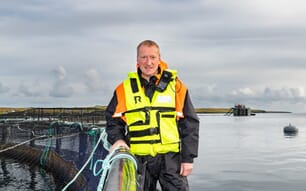In all 28 per cent of cod products in Ireland are mislabelled, as compared to seven per cent in the UK, according to the research.
This is the first time that researchers have compared the labelling of cod products sold in Ireland and the UK. Both countries operate under the same EU policies for seafood traceability and labelling.
Using a DNA barcoding technique (COI barcoding gene), scientists from University College Dublin, Ireland, genetically identified 226 cod products purchased from supermarkets, fishmongers and take-away outlets across Ireland (131) and the UK (95), and compared the results against the product labels.
In 2010, the same scientific team from University College Dublin published findings that uncovered high levels of fish product mislabelling in Ireland. “Smoke, mirrors and mislabelled cod: poor transparency in the European seafood industry” published in Frontiers in Ecology and the Environment, a journal of the Ecological Society of America.
“Thirty seven of the 131 cod products purchased in Ireland, and seven of the 95 purchased in the UK were shown to be mislabelled,” said Dr Stefano Mariani from the School of Biology and Environmental Science, University College Dublin, leader of the research team.
“We found mislabelled cod products in each type of outlet, and identified that most of the mislabelled cod products were actually less expensive fish species substituted for cod and sold to consumers at a price premium,” he said.
Cod is the most popular whitefish consumed in Ireland and the UK and the demand remains high despite the fact that local Atlantic cod stocks have largely been depleted and much of the cod is now imported.
In all, 88.6 per cent of all mislabelled cod products identified from both Ireland and the UK were smoked, breaded or battered.
The scientists say that this is not surprising because “smoking, breading and battering can conceal the appearance, the smell and the taste of a fish fillet.”
“But we also uncovered a more subtle form of mislabelling where cod products were mislabelled to specifically match a demand for more sustainable seafood choices,” said Dr Mariani.
According to the scientists, the demand for more sustainable seafood choices is likely a result of public awareness campaigns including those run by environmental non-governmental organisations like the World Wildlife Fund (WWF) and Greenpeace.
“By genetically testing cod products samples purchased from supermarkets we found threatened Atlantic cod (Gadus morhua) mislabelled and sold as ‘sustainably sourced’ Pacific cod (Gadus macrocephalus),” said Dana Miller, the lead author, who completed the study as part of her PhD at University College Dublin.
“All of the cod products mislabelled as ‘sustainably sourced’ Pacific cod were purchased from a single supermarket chain that operates in both Ireland and the UK.”
Under EU policy guidelines labels on packaged products sold in supermarkets should allow a single item to be traced back to the processing plant that originally supplied it.
However, the scientific team were unable to unambiguously identify the source of the mislabelling.
But, says Dr Mariani: "There are strong indications that the mislabelling is taking place at supplier and retailer level."
The less expensive fish species substituted, mislabelled and sold as cod to consumers included: pollack (Pollachius pollachius), saithe (Pollachius virens), greater argentine (Argentina silus), and whiting (Merlangius merlangus).
The research was funded by the Irish Research Council for Science, Engineering and Technology.
July 2011




